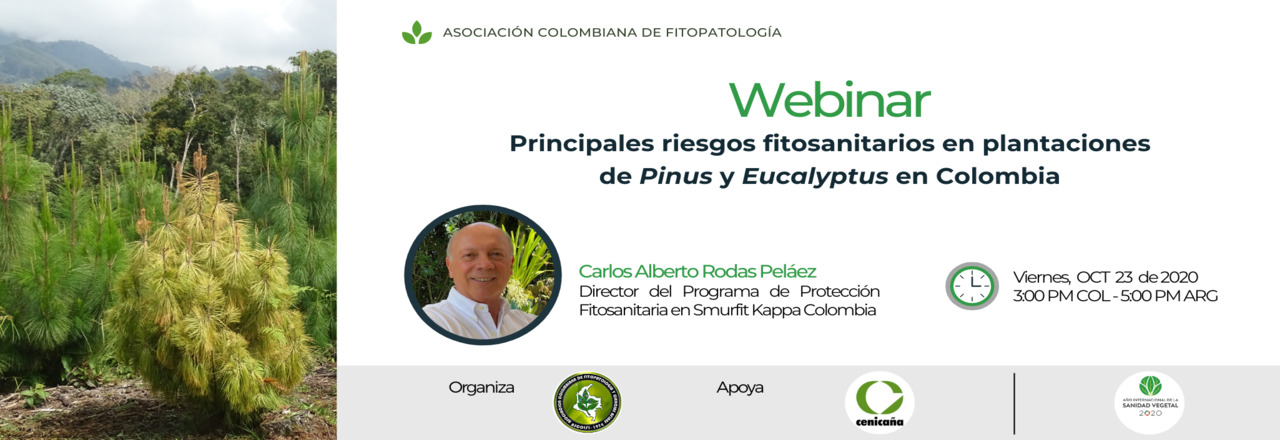
- This event has passed.
Main phytosanitary risks in Pinus and Eucalyptus plantations in Colombia | ASCOLFI Webinar.
October 23, 2020 | 3:00 pm - 5:00 pm

During the Webinar, we will talk about:
Reforestation in Colombia with pine and eucalyptus species represents an important contribution to the country's pulp, paper and wood industry. The wide range of altitudes, environmental conditions, soil quality and geographic variety offers great agro-ecological advantages for Pinus and Eucalyptus plantations. However, this great variety of environments in the different regions has resulted in a wide range of pathogens and insects that negatively affect the productivity of the forest resource.
The main diseases that affect Pinus plantations are caused by pathogens that include Fusarium circinatum, Dothistroma septosporum, Diplodia sapinea, Lecanoscticta sp. cf. L. acicola and Calonectria spp. For the genus Eucalyptus, the most frequently occurring pathogens are Chrysoporthe cubensis,
Botryosphaeria ribis, Cylindrocladium spathulatum, Ceratocystis neglecta, Austropuccinia psidii, and Ralstonia solanacearum. Its management is based on the identification of genetic tolerance to diseases through the screening of genetic materials in different environments.
The main groups of insects that affect reforestation in Colombia include Lepidoptera species: Geometridae, Hymenoptera: Formicidae and Phasmatodea: Heteronemiidae. The management of these insects is based on biological control in an Integrated Management scheme.
This event is organized by the Colombian Association of Plant Pathology and Related Sciences - ascolfi. Hosted by Cenicaña.
Ir a registration page
Presenter:

Carlos Alberto Rhodes Pelaez
Director of the Phytosanitary Protection Program at Smurfit Kappa Colombia
Smurfit Kappa Colombia












